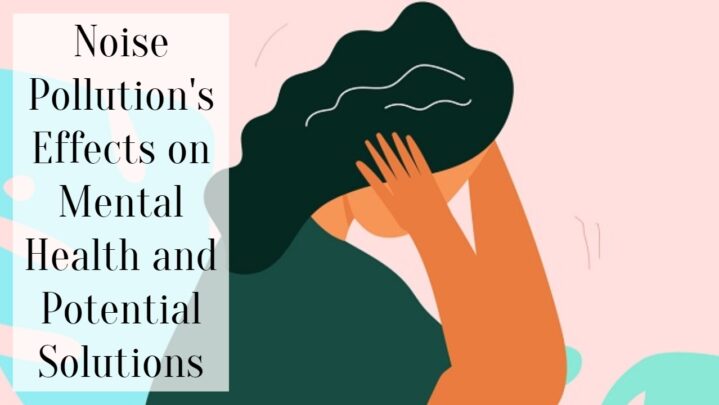Noise exposure can induce anxiety, anger, and depression, as well as sleep difficulties, hearing loss, and cognitive impairment.
Noise pollution has been demonstrated in studies to have an impact on several areas of mental health. Chronic exposure to traffic noise, for example, has been connected to an increased risk of depression, whereas noise from airplanes and trains has been linked to greater levels of stress and a worse quality of life. Furthermore, children who are subjected to excessive levels of noise at home or at school exhibit elevated levels of inattention and hyperactivity.
There are various potential remedies that people and communities may take to alleviate noise pollution and its consequences on mental health. These are some examples:
Reduce noise sources by restricting the use of noisy machinery or equipment, lowering traffic volume and speed, and erecting sound barriers around high-noise regions such as roads or airports.
Using earplugs or noise-canceling headphones: These devices can assist minimize the amount of noise that enters the ear, which is especially beneficial for persons who live or work in noisy surroundings.
Sound insulation: Homes, workplaces, and other structures can be insulated to minimize noise from the outside. Installing double-glazed windows, closing gaps in doors and walls, or utilizing acoustic panels can all help.
Creating quiet zones: To minimize noise levels and promote a tranquil environment, some places such as libraries, parks, and residential neighborhoods might be classified as quiet zones.





